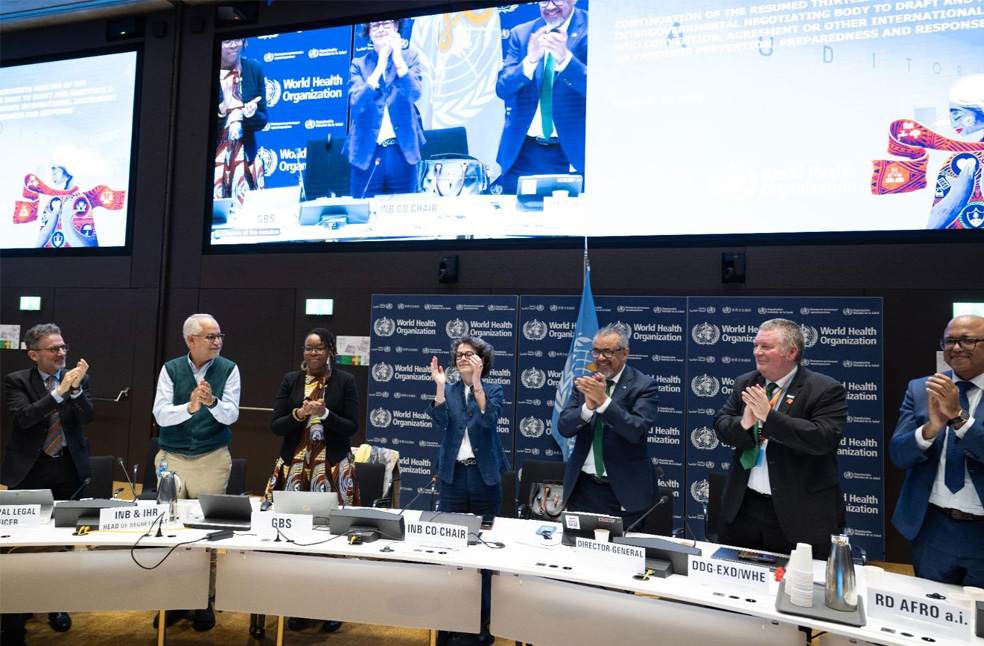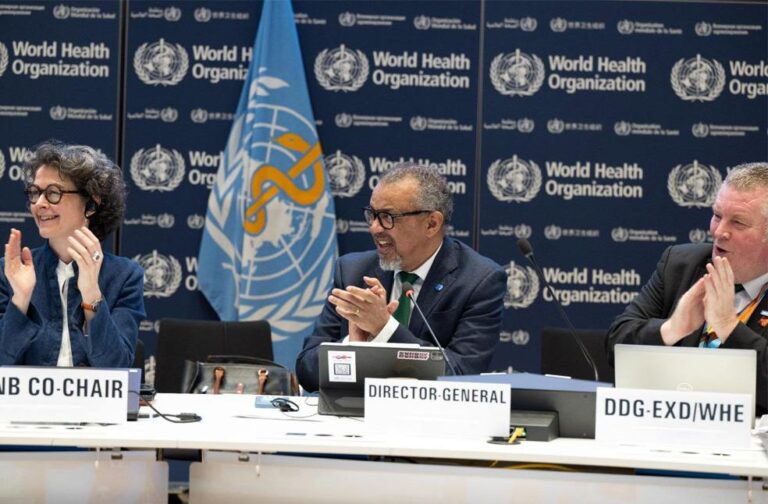Geneva: WHO Member States have made history in Geneva by reaching consensus on a proposed draft Pandemic Accord, marking a major milestone in global health diplomacy.
The agreement, which follows over three years of negotiations and 13 formal rounds of discussion, sets the stage for a coordinated international response to future pandemics.
The finalized draft will now be presented for consideration at the World Health Assembly in May, the WHO confirmed.
WHO Director-General Dr. Tedros Adhanom Ghebreyesus praised the milestone as proof that multilateralism remains effective, stating that countries have shown they can work together to find consensus.
Tedros said that, “We look forward to the World Health Assembly’s consideration of the agreement and – we hope – its adoption.”
This agreement stems from a global call made in 2021 by WHO member states to establish a unified strategy following the challenges of the COVID-19 pandemic.
The aim was to ensure better international coordination and preparedness in the face of future health crises.
However, progress was delayed when countries failed to meet an earlier May 2024 deadline due to disagreements, particularly over intellectual property rights and vaccine accessibility.

The Pandemic Accord includes several key provisions. These include enhanced sharing of health technologies and scientific knowledge, the mobilization of a multidisciplinary global emergency health workforce, and the creation of a ‘pathogen access and benefit sharing system,’ designed to ensure that any benefits derived from pathogen research are equitably distributed.
One notable absence from the final stage of negotiations was the United States. President Donald Trump had issued an executive order in February cancelling the country’s WHO membership, which meant that the US did not take part in the concluding talks.
Despite these setbacks, the agreement has been lauded as a step forward for global health equity.
South Africa’s Precious Matsoso, one of six ambassadors who co-led the negotiations, described it as a monumental achievement.
Matsoso acknowledged the challenges faced during the negotiation process but emphasized the shared global belief that ‘viruses do not respect borders’ and that no nation can be truly safe until all are secure.



